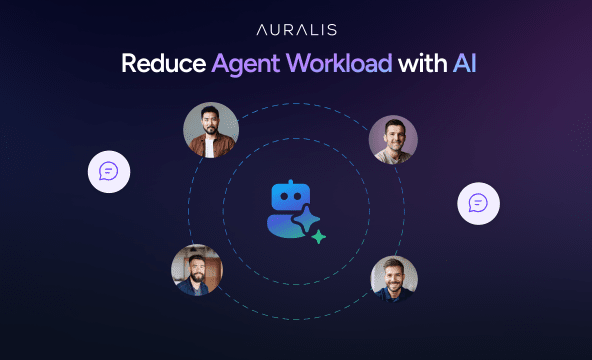AI-driven support management
AI-driven support management is revolutionizing the way businesses handle customer service and operational efficiency. By integrating artificial intelligence into support workflows, organizations can automate routine tasks, improve response times, enhance customer experiences, and reduce the workload on support agents. This approach enables businesses to provide high-quality service while maintaining scalability, cost-efficiency, and continuous improvement.
One of the key benefits of AI-driven support management is the automation of repetitive tasks. AI-powered tools, such as chatbots, virtual assistants, and automated ticketing systems, can handle a wide range of customer queries without the need for human intervention. By managing basic inquiries, such as password resets, order tracking, and frequently asked questions, AI frees up support agents to focus on more complex issues that require human expertise. This improves the overall efficiency of the support team, allowing agents to handle higher volumes of requests with faster response times.
AI-driven support management also enhances customer experiences by offering personalized service. AI systems can analyze customer data, including past interactions, preferences, and purchase history, to provide tailored support. For example, AI can recommend products based on a customer’s previous purchases, suggest solutions to recurring problems, and anticipate customer needs before they even arise. By delivering relevant and personalized responses, businesses can increase customer satisfaction, build loyalty, and foster long-term relationships.
Additionally, AI-driven support management optimizes the entire support process by automating ticket routing and prioritization. AI can analyze incoming tickets, classify them based on urgency or complexity, and route them to the appropriate agent or department. This ensures that customers receive timely support, reducing wait times and improving issue resolution efficiency. Furthermore, AI can continuously monitor the progress of each ticket, providing real-time updates to customers and agents, which helps ensure that no issues are overlooked.
AI can also assist in managing agent performance and providing valuable insights into customer service operations. AI-driven analytics tools can track key performance metrics such as response time, resolution time, customer satisfaction scores, and agent efficiency. By analyzing this data, businesses can identify areas for improvement, optimize workflows, and offer targeted training or support to agents who may need it. AI systems can also recognize patterns in customer interactions, helping businesses identify common pain points, customer frustrations, and trends in demand, which can be used to further refine support strategies.
Another significant advantage of AI-driven support management is its ability to scale with the needs of the business. As organizations grow, the volume of customer interactions typically increases, which can place a strain on support teams. AI-powered systems can handle an increasing number of inquiries without the need to hire additional staff, ensuring that support quality remains consistent even as demand rises. AI can also help businesses scale globally by offering multi-language support, allowing businesses to provide assistance to customers in different regions without additional resources.
Moreover, AI-driven support management can offer valuable insights into customer sentiment through sentiment analysis tools. By analyzing the tone and context of customer interactions, AI can identify whether a customer is satisfied, frustrated, or upset. This information can be used to prioritize tickets from customers who are experiencing frustration, ensuring that high-priority issues are addressed quickly and effectively. AI can also help businesses proactively address potential issues by detecting negative sentiment early in the support process, allowing agents to respond before problems escalate.
In addition to improving the customer experience, AI-driven support management can lead to significant cost savings for businesses. By automating routine tasks and optimizing agent workflows, businesses can reduce the need for a large support team, lowering labor costs. AI can also help businesses streamline their operations by identifying inefficiencies in their support processes, which can result in better resource allocation and reduced operational overhead. With AI-driven support management, businesses can achieve a higher level of efficiency while delivering exceptional customer service.
However, despite the many benefits, there are challenges to implementing AI-driven support management. One of the key challenges is ensuring that AI systems are properly integrated with existing support tools and platforms. Businesses must carefully plan their AI implementation to ensure compatibility with CRM systems, helpdesk platforms, and communication channels. Additionally, AI models require continuous training and refinement to remain effective, so businesses must invest in maintaining and improving their AI systems over time. Collaboration between AI experts and support teams is essential to ensure that AI-driven solutions are aligned with business goals and customer needs.
Another challenge is ensuring that AI systems maintain a human touch in customer interactions. While AI can handle many tasks efficiently, there are still situations where human empathy, understanding, and judgment are necessary. Businesses must strike the right balance between automation and human involvement to ensure that customers feel valued and supported throughout their journey.
In conclusion, AI-driven support management offers numerous benefits to businesses, from enhancing operational efficiency to improving customer satisfaction. By automating routine tasks, personalizing customer interactions, and providing valuable insights, AI can significantly improve the quality of customer service while reducing costs. With AI’s ability to scale, improve agent performance, and handle complex tasks, businesses can provide a seamless, efficient, and personalized experience to customers, regardless of volume or complexity. As AI technology continues to evolve, businesses will have even more opportunities to optimize their support management strategies and deliver exceptional service at scale.

- Articles
-
 Amy
Amy
- 7 min read
